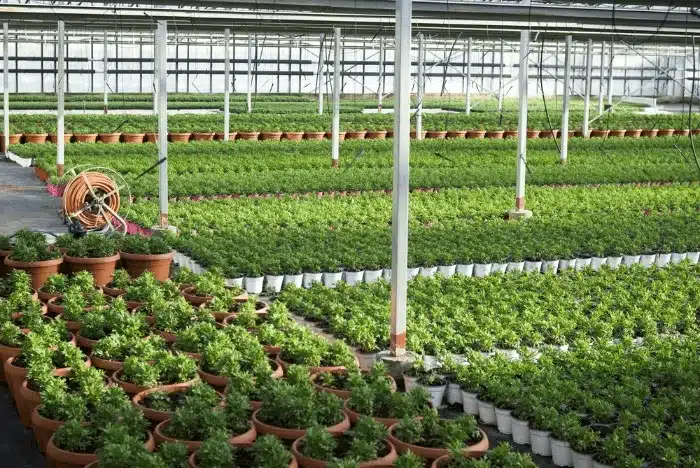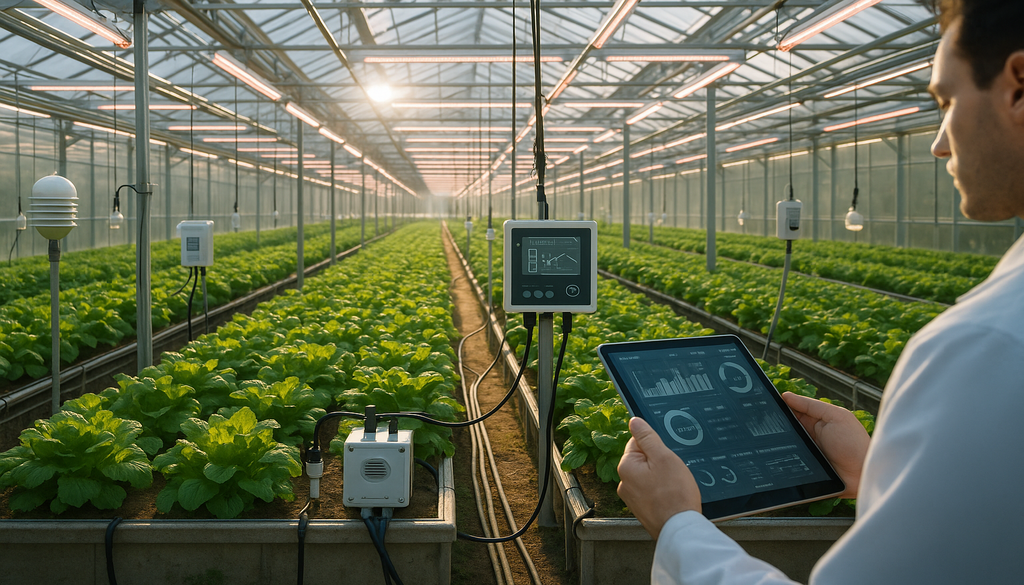
Inventory management is a critical process for commercial plant growers to ensure profitability, customer satisfaction, and efficient operations. When done correctly, it can help reduce costs and maximize profits. In this guide to inventory management for Commercial Growers, Nurseries, and Agriculture businesses, we will discuss the importance of inventory management in the commercial plant grower industry as well as the benefits of using nursery management software. By the end of this guide, you will have a better understanding of how inventory management can help your plant-growing business succeed.
The Importance of Inventory Management in the Commercial Plant Grower Industry
In the commercial plant grower industry, inventory management is critical for success. It helps to ensure that profits are maximized and customer satisfaction is maintained. It also helps to minimize shortages and reduce costs associated with inventory management. Here are some of the benefits of implementing a proper inventory management system:
Accurate Tracking of Stock Levels
A proper inventory management system enables commercial plant growers to accurately estimate potential sales inventory and track stock levels, ensuring that they never run out of product. This is crucial for ensuring that customer orders are fulfilled on time and making sure there is enough product in stock to meet demand.
Increased Efficiency
A properly managed inventory system means that there is no unnecessary waste, as products are only ordered when needed and supplies are never overstocked. This increased efficiency leads to cost savings and higher customer satisfaction levels.
Unlock the Full Potential of Your Nursery or Growing Operation Today with Argos Software's Tailored Solutions.
Start Your Journey Towards Enhanced Efficiency and Growth Now!
Request a DemoReduced Costs
As mentioned, effective inventory management reduces the costs associated with excess inventory, such as storage and handling costs. It also reduces the costs associated with stock shortages, such as rush shipping fees and lost sales.
Maximized Profits
Effective inventory management helps greenhouses, nurseries, and commercial plant growers maximize their profits by ensuring that they have the right products in stock to meet customer demand. It also helps growers minimize waste by reducing the amount of unsold inventory that must be discarded.
Improved Customer Satisfaction
Having the right products in stock ensures that customers can purchase what they need when they need it. This increases customer satisfaction, which leads to repeat business and positive word-of-mouth marketing.

The Process of Inventory Management for Commercial Plant Growers
Inventory management is an essential part of any commercial plant grower’s business. It helps to ensure that there is enough product in stock to meet customer demand and minimize the costs associated with excess inventory or stock shortages. In this section, we will look at the process of inventory management for commercial plant growers, from determining your inventory needs to monitoring and adjusting your plant materials and inventory management strategies.
1. Determine Your Inventory Needs
Before you can effectively set up inventory systems to manage your inventory, it is important to first determine your inventory needs. This includes understanding the size of your customer base, predicting customer demand, estimating the quantity of stock needed to meet that demand, and the frequency of orders required.
2. Monitor Your Inventory
Once you have determined how many plants your inventory needs, it is important to regularly monitor your stock levels. This involves keeping track of the stock you have on hand, the stock that is on order, and the stock that has been sold but not yet delivered. This helps to ensure that you are able to quickly identify any stock shortages and address them in a timely manner. It’s also important to monitor your equipment inventory such as pots, trays, labels, and other materials needed for your operation.
3. Analyze Your Inventory Data
In order to effectively manage your inventory, it is important to analyze the data associated with your inventory levels. This includes understanding customer buying trends and identifying any potential problems or issues that may arise due to changes in demand or supply. Look for trends in sales, identify slow-moving items, and forecast demand to ensure that you have accurate sales inventory and the right products in stock to meet customer demand.
4. Implement Inventory Management Strategies
After analyzing your inventory data, you should implement strategies to ensure that your inventory is managed effectively. This could include automating ordering processes such as setting up automatic inventory replenishment to ensure that you always have the right products in stock. Alternatively, consider setting up your inventory control system to provide alerts when stock levels reach a certain threshold. Depending on the situation, it could also mean ordering inventory in bulk to take advantage of volume discounts.
5. Monitor and Adjust Your Inventory Management Strategies
Finally, it is essential to monitor, maintain control, and adjust your inventory management strategies regularly. This involves reviewing your inventory data, identifying areas for improvement, and implementing changes to optimize your inventory management processes continually.
With the right inventory management strategies and tools, commercial plant growers can maximize their profits, improve customer satisfaction, and reduce the costs associated with stock shortages.
Related: Nursery Management Software: The Ultimate Guide for Agribusiness Professionals
Best Practices for Inventory Management in the Commercial Plant Grower Industry
We’ve discussed some of the fundamental processes that are involved in inventory management for commercial plant growers. Now, let’s look at some best practices to ensure that your plant material inventory is managed effectively and efficiently.
- Use a Nursery Management or Plant Inventory System:
Nursery management software like Argos can significantly improve your inventory management processes. This software provides commercial plant growers with real-time inventory tracking, automatic inventory replenishment, and streamlined ordering processes.
- Implement First-in, First-Out (FIFO) Method:
The FIFO method involves selling the oldest products in your inventory first. This helps ensure that your inventory is always fresh and reduces the risk of waste due to expired products.
- Conduct Regular Inventory Audits:
Regular inventory audits help identify discrepancies in inventory levels, such as missing or damaged items. This helps ensure that your inventory data is accurate and that you can make informed decisions about inventory management.
- Use Your Inventory Control System to Forecast Demand:
As we’ve mentioned, forecasting demand is an important part of inventory management. Forecasting involves analyzing historical sales data and market trends to predict future demand for your products. This helps ensure that you have the right products in stock to meet customer demand and avoid stockouts.
- Optimize Storage Space:
Optimizing your storage space can help reduce storage costs and improve inventory management processes. This may involve using vertical storage solutions or implementing a barcode system to streamline inventory management.
- Develop Relationships with Suppliers:
Developing strong relationships with suppliers can help ensure that you receive high-quality products on time and at a reasonable cost. This helps reduce the risk of stock shortages and ensures that you can meet customer demand.
- Train Staff on Inventory Management:
Proper training is crucial to effective inventory management. Staff should be trained on inventory management best practices, such as how to use nursery management software, how to conduct inventory audits, and how to implement the FIFO method.
- Regularly Review and Adjust Your Inventory Management Processes:
As mentioned previously, it is essential to regularly review your inventory management processes and adjust them as needed. This may involve analyzing your inventory data, identifying areas for improvement, and implementing changes to optimize your inventory management processes continually.

The Importance of Nursery Inventory Management Software
Commercial and wholesale nursery management software like Argos can significantly improve your inventory management processes. We provide inventory control software for plant businesses with a comprehensive inventory management system that includes real-time inventory tracking, stock level monitoring, plant material inventory system, and automatic inventory replenishment.
Here are some of the benefits of using nursery management software like Argos:
Accurate Inventory Tracking:
Nursery management software provides real-time inventory tracking, allowing businesses to monitor stock levels accurately. This same inventory control software prevents stockouts and guarantees that customers have access to the right products when they need them.
Automatic Inventory Replenishment:
Our nursery management software can automatically reorder inventory when stock levels fall below a predetermined threshold. With the inventory control software, businesses can steer clear of stockouts and ensure that the right products are always available for their customers. Our solution guarantees efficient and streamlined inventory management, preventing any loss in sales due to inadequate stock or product unavailability.
Streamlined Ordering Process:
Our nursery industry software streamlines the ordering process, allowing businesses to order inventory quickly and efficiently. This saves time and reduces the risk of errors.
Improved Data Management:
Our nursery management and inventory control system provides businesses with a centralized way to manage inventory data. Keeping them organized and reduces the risk of errors associated with manual data entry.
Better Customer Service:
Argos nursery inventory software provides better customer service by ensuring that the right products are available when customers need them. This leads to increased customer satisfaction and positive word-of-mouth marketing.
The Specific Needs of a Plant Material Inventory System for Commercial Greenhouses and Nurseries
Inventory management software for plant-grower businesses like commercial greenhouses and nurseries differs from other inventory management systems such as those used for warehouses or fulfillment operations in several key ways.
- Tracking perishable products: Unlike warehouses, where the inventory typically consists mainly of non-perishable goods, plant-grower businesses deal with perishable products that have a limited shelf life. Inventory management software for plant-grower businesses needs to be able to track the age of the products and help manage inventory rotation to reduce the risk of waste.
- Order fulfillment complexity: Plant-grower businesses deal with a diverse range of plant species, each with unique requirements for growth and care. Inventory management software for plant-grower businesses needs to be able to manage complex order fulfillment workflows that accommodate these diverse requirements.
- Real-time data tracking: Plant-growing businesses like greenhouses and nurseries often require real-time data tracking to ensure that the products are healthy, growing as expected, and meeting quality standards. Inventory management software for these businesses needs to be able to track data such as temperature, humidity, and light levels to ensure that the plants are growing under optimal conditions.
- Seasonal fluctuations: As with certain types of warehouses or fulfillment operations, plant-growing operations often experience seasonal fluctuations in demand. Inventory management software for plant growers needs to be able to adjust inventory levels to account for these fluctuations and ensure that there is enough stock to meet demand during peak seasons.
Which Types of Plant-Growing Businesses Should Use Inventory Management Software?
Inventory management software can be beneficial for various types of plant-growing businesses. Below are some examples of businesses that can benefit from using inventory management software like Argos:
- Commercial Greenhouses: A commercial greenhouse operation require proper inventory management to ensure that they have enough products in stock to meet customer demand. With inventory management software, greenhouse managers can accurately track stock levels, automate inventory replenishment, and streamline ordering processes.
- Plant Nurseries: Plant nurseries need to manage inventory effectively to avoid stockouts and waste. With inventory management software, plant nurseries can analyze inventory data, forecast demand, and optimize storage space to maximize profits and reduce costs.
- Wholesale Plant Suppliers: Wholesale plant suppliers need to manage their inventory effectively to meet the demands of their customers. With inventory management software, wholesale plant suppliers can analyze inventory data, optimize storage space, and automate inventory replenishment to ensure that they always have the right products in stock.
- Plant Retailers: Plant retailers need to manage their inventory effectively to ensure that they have the right products in stock to meet customer demand. With inventory management software, plant retailers can track their inventory levels, forecast demand, and optimize their storage space to reduce costs and maximize profits.
Various commercial plant-growing businesses can benefit from using inventory management software like Argos. By implementing proper plant inventory control and management strategies and using the right tools, businesses can maximize profits, reduce costs, and improve customer satisfaction.
Conclusion
Inventory management is a critical process for commercial plant growers to ensure profitability, customer satisfaction, and efficient operations. By accurately tracking stock levels, increasing efficiency, reducing costs, and maximizing profits, commercial plant growers can stay competitive in the industry. Implementing best practices such as using nursery management software, conducting regular inventory audits, and optimizing storage space can help streamline inventory management processes and ensure accurate inventory data.
One of the best solutions for effective inventory management is using nursery order management software like Argos. Our software provides real-time inventory tracking, automatic inventory replenishment, and streamlined ordering processes, all of which can help commercial plant growers manage their inventory more efficiently.
Contact us today to learn more.




